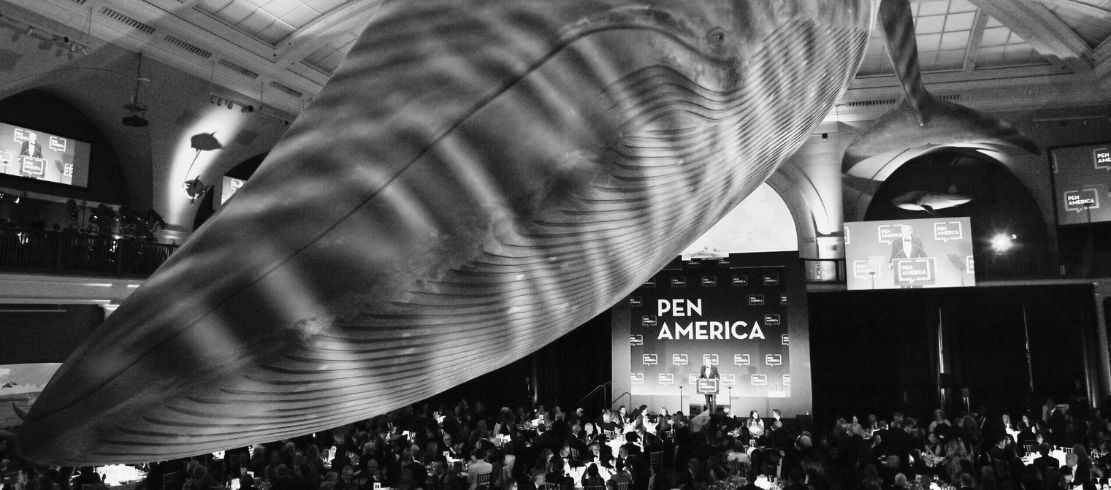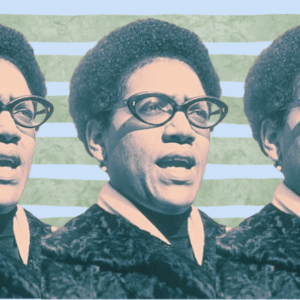
Weaponizing a Word: On Falsely Equating Criticism of Israel With Antisemitism
Daniel José Older: “Genocide is the single most important and urgent threat to free speech on this planet.”
On the two hundred and thirty-third day of the genocide in Gaza, as Palestinians searched for the charred body parts of children who had been burned alive in their tents by an Israeli airstrike, the New York Times published yet another entry in the well-worn genre of essays that equate any criticism of Israel with antisemitism. Like all of them, this one, by James Kirchick, is long on rhetoric and short on evidence. It uses a total of two anonymous sources, both describing only their feelings, to make the alarming claim in the headline: “A Chill Falls Over Jews in Publishing.”
Kirchick dedicates a good chunk of this piece to the widespread criticism of the leadership of PEN America, the literary and free speech organization that has been facing ongoing outcry for their relative silence on Gaza. The Kirchick essay is at least the third time that PEN America’s defenders have used the specter of antisemitism to avoid engaging with the actual critiques at hand; none of these instances include any actual examples or even a working definition of what antisemitism is—each just presumes that the word itself, unsupported by facts, is enough to shut people up.
In The Atlantic, which on the day of the tent massacre declared it “possible to kill children legally,” Gal Beckerman wrote in April that he understands why some “wonder whether the personal animus directed at [PEN America CEO] Suzanne Nossel is not just because she is the organization’s leader but because she is Jewish.” PEN America tweeted almost the entire article verbatim, not just the link, essentially endorsing its contents, which read like they’d been churned out directly from its own PR department. Last month, PEN America board member Andrew Solomon told the New York Times, again with no evidence, that “there has been a tremendous amount of antisemitism directed at [PEN America president] Suzanne [Nossel].”
In another Atlantic essay, PEN America board member George Packer accused those of us speaking out of being authoritarians who “silence other writers” and compared us to the January 6 rioters. In the twisted logic of this free speech organization’s board, the mere act of dropping out of a literary festival in protest becomes a perverse powerplay on par with the actual censorship they’re supposed to be fighting. Rather than engage with our good faith critiques, they throw out words like “antisemitism” and “authoritarianism” in order to avoid a real discussion about their failures.
As one of the writers who has publicly called out PEN America, I am outraged by these claims of antisemitism, but not because I’m Jewish—that just makes it personal. I’m outraged because in their desperation to distract from the ongoing genocide in Palestine they don’t even bother trying to make sense.
Beckerman and Solomon contextualize their antisemitism claims by placing them near statements dissenting writers have made about Nossel’s enthusiastic embrace of Zionism. But this is not controversial nor a matter of opinion: Nossel, a former US State Department employee, has been clear in her support of Israel for decades. In 2011, a year marked by a sharp uptick in Palestinian civilian deaths, when pro-Israel hardliners argued that the US should boycott the UN Human Rights Commission to delegitimize it for daring to criticize Israel’s abysmal treatment of Palestinians, then State Department official Suzanne Nossel reassured them that the better approach was to not “cede that ground to those who will work against our interests and against Israel’s interests.” The US went on to vote against any measure condemning Israel’s violations of international law.
At a time when the Israeli state is weaponizing the word “antisemitism” in the name of continuing its indefensible crimes, PEN America’s defenders are using a card from the same playbook.
Without any actual examples of the antisemitism invoked, we’re left to understand that the mere pointing out of her Zionism is the sum total of it. Judaism had, of course, been around for thousands of years before the European colonial ideology Zionism came along, and Judaism will hopefully be around for thousands of years after it’s gone. Millions of Jews are not Zionists, and the vast majority of Zionists are Christian Evangelicals.
Not only are Judaism and Zionism not at all synonymous, the conflation of the two serves the strategic purpose of providing cover for Israel’s documented war crimes. In a time when actual antisemitism is on the rise from fascist right-wing elements across the globe, it’s deeply cynical and harmful to casually invoke this term to evade accountability and to muddle an uncomfortable conversation.
PEN America and its defenders have more heat for writers critiquing them than they do for FOX News, which has uplifted actual antisemitic voices and continues to use its mass media platform to incite the very book bans PEN America is supposed to be fighting. Rupert Murdoch’s News Corp, which owns FOX News, was the number one sponsor of the recent PEN America Gala, which honored the Wall Street Journal, another News Corp company. Murdoch’s outlets, from the Journal to FOX to the New York Post, have all amped up their pro-genocide coverage in recent weeks.
On the night of the black-tie gala, as protestors held a vigil for slain Palestinian writers outside, PEN America CEO Suzanne Nossel proudly announced that PEN America had stood up for Moms For Liberty. Moms For Liberty, which the Southern Poverty Law Center describes as a right wing extremist group, with ties to the violent white supremacist Proud Boys, has pushed book bans across the country using harassment, intimidation, homophobia, and racism. But PEN America seems more concerned about writers pulling out of their festival than organizations that promote hate.
A common response to our critique of PEN America is to point out the importance of their work against book bans, an argument that places the availability of books in the US over the lives of Palestinians. “Does it really make sense,” Gal Beckerman wonders in his Atlantic essay, “to jettison such an entity without first thinking through what its absence would mean, what a world without PEN, without a defense of expression, whatever form it might take, would actually look like?” If he had engaged with any of the many things we’ve written on the topic, rather than scanned them fruitlessly for anything he could label “antisemitism,” he might’ve learned that no one is calling for the destruction of PEN America. It could be that Beckerman so strongly associates the current CEO with the organization itself that he can’t distinguish between the two. We are unambiguously demanding a change in leadership so that PEN America can live up to its stated goals.
When college administrators unleashed SWAT teams and riot cops on peaceful protestors last month, PEN America parroted the antisemitism claims of university officials, cops, President Biden, and sputtering TV pundits. This time, rather than hide behind The Atlantic, they cribbed it in a statement expressing tepid concern about attacks on free speech. But PEN America’s use of antisemitism here served to undermine everything else they were pretending to care about. Nowhere in this press release do they mention even mild concern about anti-Palestinian violence, about rampant Islamophobia, about anti-Arab hate crimes—all of which have been meticulously documented and posted across social media.
PEN America does not truly care about confronting antisemitism—if it did, then it would confront actual antisemitism rather than straw dogs.
Genocide is the single most important and urgent threat to free speech on this planet. A genocide funded and supported by the US government is the direct responsibility of all of us, including PEN America. Instead, PEN America has dipped and dodged, played semantic games, platformed pro-genocide voices while violently removing Palestinian writer Randa Jarrar for protesting them, and then promoted vile accusations against anyone who dares disagree with them.
But PEN America claims to be above politics. The implication here is that calling a genocide a genocide is the only political act, while avoiding the dreaded g-word exists in a vague, neutral zone where self-proclaimed free speech purists can ignore the murder of over thirty-thousand Palestinians. Like so many arts and humanities organizations that suddenly want to claim neutrality when faced with Israel’s genocidal campaign in Gaza, PEN America clearly did not feel itself to be above politics when Russia invaded Ukraine. In fact, they led the charge, organizing street demonstrations in support of Ukrainian writers killed and imprisoned by Russia, and bringing a delegation of Ukrainian writers to meet with US Congress members. It took a sustained pressure campaign—the very one they’re labeling antisemitic—for PEN America to even dedicate a full Instagram post to slain Palestinian writers.
The truth is none of this has anything to do with Judaism. PEN America does not truly care about confronting antisemitism—if it did, then it would confront actual antisemitism rather than straw dogs—and it very clearly does not give a damn about Palestinian life. It had to be dragged kicking and screaming to even utter the word “ceasefire,” and that was six months into the genocide and long after their parent organization, PEN International, and most other PEN chapters globally had already done so.
Our Jewishness is not a shield. At a time when the Israeli state is weaponizing the word “antisemitism” in the name of continuing its indefensible crimes, PEN America’s defenders are using a card from the same playbook. Desperate to talk about anything but the ongoing atrocities, daily massacres, and mass starvation we are all witnessing in real time, they deploy the very real mechanism of distraction.
As writers who care about free speech, we must push for new leadership at PEN America that will address this moral crisis. As Jews, we must decenter ourselves and stop prioritizing our comfort over the actual lives of Palestinians. As Kaleem Hawa recently wrote, our task as antizionist Jews is not “the ‘redemption’ of Judaism…it is the freedom of Palestine.”
Daniel José Older
Daniel José Older, a lead story architect for Star Wars: The High Republic, is the New York Times best-selling author of numerous novels, including The Book of Lost Saints, and Shadowshaper, which was named one of the best fantasy books of all time by TIME magazine and one of Esquire’s 80 Books Every Person Should Read. He won the International Latino Book Award and has been nominated for the Kirkus Prize, The World Fantasy Award, the Andre Norton Award, the Locus, and the Mythopoeic Award.



















